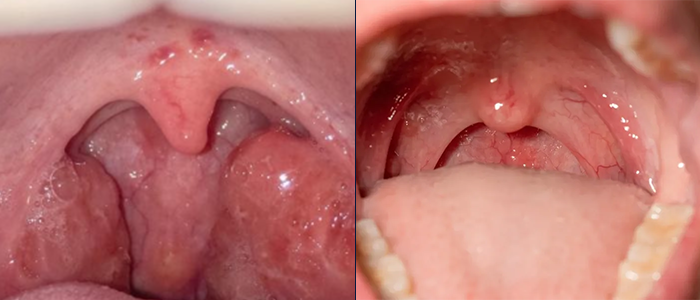Throat Problems
Tonsills and Adenoids
Most common problem in children causing
1) Breathing through the mouth
2) Oral breathing in daytime and snoring during the night.
3) Restless sleep with frequent waking up
4) Bedwetting
5) Halitosis (bad smell from the mouth) : In the oropharynx, cause may be infected tonsils , post nasal discharge
6) Behavioural issues : Aggression , hyperactivity , irritability (or) inattention.
Note: Consult ENT doctor proper grading of disease.
Hoarseness of voice
Common Causes are
1) Viral infections like a cold (or) throat infection
2) Growths on the vocal cords , like polyps , nodules (or) cyst
3) Acid reflux from the stomach
4) Aging
5) Overuse (or) misuse of the voice
6) Inhaling irritating substances
7) Thyroid conditions
8) Very rarely cancer
